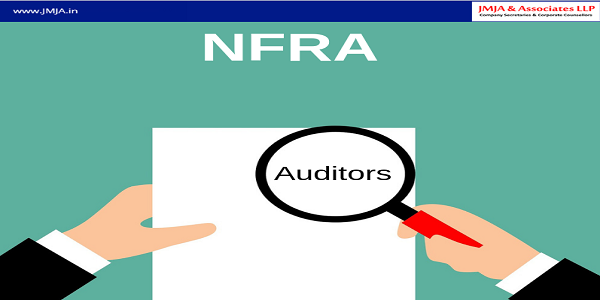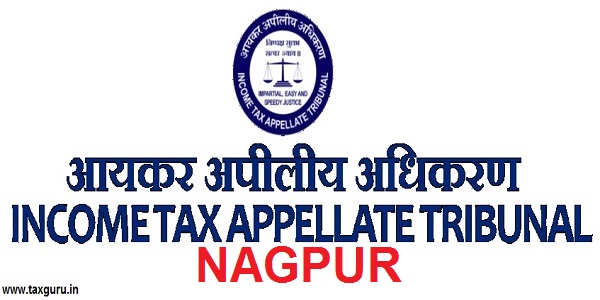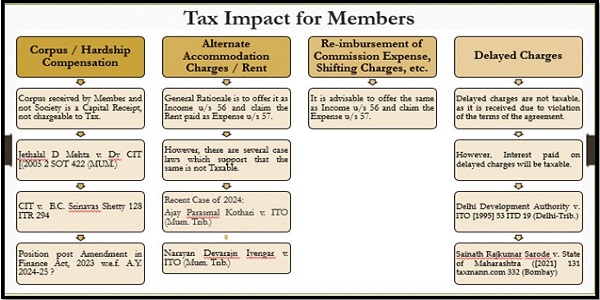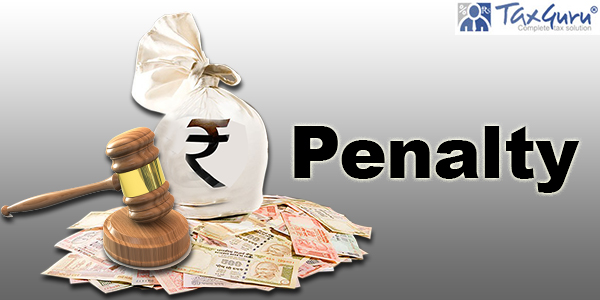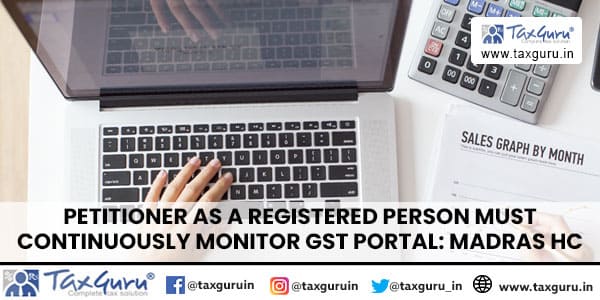INTRODUCTION
The Competition Commission of India’s handling of mergers in recent times is surreptiously paving the way for Monopolies in Indian markets. The justification behind allowing mergers to take place is to promote economic efficiency using competition as means for creating a market responsive to consumer preferences. Consumer Welfare Approach (CWA) falls in line with CCI’s apparent ‘market friendly’ and ‘maintaining a competitive culture’ goals. There has been an increasing trend towards merging competition law and policy with that of consumer protection – a markedly dangerous move which might result in a planned market disaster. This being true in situations where CCI has allowed big players in the market to merge because their collusion resulted in cheaper prices and efficient distribution. Although, it is agreeable that consumer protection and competition are two sides of the same coin – the two are not the same and shouldn’t be confused. This essay seeks to argue against the amalgamation of competition law and consumer welfare especially in light of mergers on a case study basis from Indian and foreign jurisdictions.
Keywords: Combinations, Consumer Welfare Approach, Appreciable Adverse Effect, CCI, European Commission
COMPETITION POLICY AND CWA: AN ONEROUS RELATIONSHIP?
The focus of this essay rests upon the interplay between Sections 4, 5 and 18 of the Competition Act, 2002 (hereinafter, the Act) in the light of increasing tendency towards mergers. India has become a hotbed for both domestic as well as international mergers and acquisitions, starting from the IT sector; it has made surprising strides in the field of pharmaceuticals, biosciences, telecommunications, aviation, minerals and a host of other sectors. The shifting status quo required the CCI to stringently regulate such mergers and combinations as it has a wider impact upon both participating and non-participating entities. On 5th March 2016, new notifications namely 673(E), 674(E) and 675(E) were passed which sought to amend and enhance existing jurisdictional thresholds. But in spite of all the safeguards given to CCI, the flawed approach undertaken by CCI towards merger control is of grave concern. Section 18 of the Act imposes an obligation upon the CCI to not only remove any form of appreciable adverse effect of competition (AAEC) but also ensure that the interest of the consumers is protected.
The CCI’s decision in the Jet Airways – Etihad merger is proof of the above statement. The Commission’s decision which was based on an assessment of grouping Indian cities and the air routes connecting not only to the cities in UAE but also Europe on Origin and Destination (O&D) approach took the following factors into consideration: (i) substitutability of airports from the demand perspective; (ii) network effects with Abu Dhabi as the exclusive hub and (iii) potential efficiencies. The order seemed to heavily rely on presumptions regarding the ‘substitutability of airports for time-sensitive customers’ and has also chose to ignore the substitutability of indirect services. Moreover the Commission’s consideration of efficiency of services for the benefit of consumers is again quite fascinating considering efficient provision of services is an area where all airlines compete and a merger of this calibre has tilted the competition in favour of Jet-Etihad. Member Anurag Goel’s dissenting opinion has highlighted the flawed presumption with regard to ‘substitutability’ of airports and efficiency of services, both of which will attribute to CWA. Goel emphasized upon the fact that the combination was likely to have an AAEC on international air passenger transportation to and from India; moreover he also stated that out of the 12 lakh passengers who travelled between India and Abu Dhabi last year, only a negligible 4 number of people chose Dubai as a layover. It is also pertinent to mention here that none of the Indian air carriers show any of the Gulf airports substitutable as fares to Abu Dhabi or Dubai from different Indian cities keep varying. It is realistically possible to indulge in predatory pricing with an expansion in fleet. Even in cities such as Chicago and Johannesburg where Indian airlines have limited attendance, Jet would maximise on the strong presence of its partner airline and would swing the competition in its favour. The CCI’s analysis of ‘potential efficiencies’ yet again, concentrates on customer welfare that would be derived from this merger which would include – provision of seamless service, lower fares for passengers travelling to smaller cities, ability to produce the same services at lower cost and possibility of reducing interline travel (layover at bigger airports for passengers travelling abroad from smaller cities). These same considerations would undoubtedly monopolize Jet-Etihad particularly in the domestic market and tilt the competition in its favour solely because consumers are benefitted in the long run. This flawed reasoning of the Commission has the potential to spell market disasters for the oligopolistic aviation industry as such approach places precedence on consumer welfare over maintaining ‘fair trade’.
THE EUROPEAN VIEW
The European Commission had developed the CWA increasingly from the 1990s, for the interpretation of the European Competition law. Three cases would be studied in detail to understand the difficulties of following a pure CWA. Firstly, as in the case of the Dutch Energy Agreement (Energiekkoard), an agreement on a roadmap was entered into for more sustainable energy in the Netherlands by 2020. Parties to the agreement included energy producers, the Government, advisory bodies to the Government and distributors. The agreement envisaged closing down of five different coal-fired power plants which lesser supply of electricity and lower emission of noxious gases. The Dutch Competition authority – Autoriteit Consument en Markt (ACM) taking into consideration both the Dutch and the European Competition law into account was of the opinion that the closing down of the fire-powered plants was a blatant violation of competition law in both systems. Even though, the Agreement sought to provide cleaner energy and lesser prices for power for household and personal use, it was violative of competition law.
Secondly, mergers with regards to non-economic causes (such as animal welfare) are also quite common in the European and should not be undermined. The second example again concentrates on an agreement entered into by different parties (again in Netherlands) including the Government, farmers, animal fodder producers and veterinarians for intensive pig farming and lowering the use of antibiotics in animal husbandry. However, it would lead to an increase in the prices of antibiotics for consumers. In such a situation, both animal welfare and human interests are involved and although, the interest involved in non-economic, one cannot deny the affect it would have on the prevailing competition. The specific antibiotic which would obviously be required by humans as well from time to time would have to be purchased at a much higher price. Apart from trying to monopolize the specific market, unfair pricing would also be indulged into (especially if the drug cannot be substituted).
A similar example of a non-economic interest would be in the area of combating binge drinking. The phenomenon has become more widespread and since, the price of alcoholic beverages decreased relative to other consumptions. Supermarkets all over the UK have sought to reconsider the price of alcoholic beverages and Tesco proposed to reconsider the price of alcohol but only if done with other supermarkets. Such a pricing arrangement clearly went against the competition law and therefore, legislative action was then considered by setting a minimum price for alcoholic beverages. India has presently not experienced a significant non-economic merger but the reasoning used by the EC for handling both economic and non-economic mergers is similar; and the above examples should ideally be taken into consideration by the CCI whilst interpreting Sections 4,5 and 18.
The EC’s decision in the case of Telefonica and Hutchison mergeris an example how the EC is slowly reverting on its CWA. The merger which included Hutchison buying O2 – Telefonica’s British counterpart was blocked by Margerethe Vestager citing strong concerns that it would lead to lesser choice and a tendency towards higher prices in the UK. After an in-depth analysis of the proposed merger, the EC arrived at the conclusion that the deal would monopolize the market and there would be lesser choices available even if it lead to a reduction of prices in the short run for the consumer’s benefit. The three major things which were considered by the EU were – reduced choices, hampering of future development of the mobile market and also a reduced number of mobile operators who might be willing to host virtual operators. Another example of EU’s strict approach is Ryanair’s proposed takeover of Air Lingus – two leading airlines operating in Ireland. The combined mergers would have led to absolute monopoly over 28 routes and on further 11 routes there would have been ‘alleged’ competitive constraint by charter airlines that could be easily set aside if the proposed merger were to take place. The remedies proposed by Ryanair were many including divestiture of Air Lingus’s operations on 43 overlapping routes, additional divestiture on London/Ireland routes and cession of take-off and landing slots to IAG/British Airways in London airports. However, the Commission’s investigation revealed creation of high entry barriers including entry stemming, especially in the Irish market. The Commission rejected the proposal even though it would have been beneficial to consumers and the quality of services would have improved. The case is eerily similar to the Jet-Airways Etihad merger which was passed.
CONCLUDING REMARKS
The shift in the EC’s approach towards more ‘fair trade’ friendly measures rather than CWA has been quite welcoming. Presently, the CCI with its Consumer Welfare Approach is indirectly causing more harm than good. With all the big ticket mergers being approved with a notion that it will lead to a reduction of prices and better quality services for consumers in the long run is a mere short sighted view that the CCI is harping upon. An examination of the EC’s approach and its aftermath, it can be construed that all the big ticket mergers have a tendency towards eventual monopolisation of the market by reducing choices for consumers and which in turn have resulted in exorbitant prices of the goods and services. Not to mention the concept of ‘competition’ being wiped out in the literal sense of the term. Thus, if the CCI has to prevent this wrong then it has to shift from more than a consumer welfare approach to a more inclusive approach where upholding ‘fair trade’ will have more prominence, and which in the long run will lead to a more consumer friendly market.
BIBLIOGRAPHY
Websites:
1. Bharati Law Review <http://docs.manupatra.in/newsline/articles/Upload/179A4818-BC9F-4D06-93A0-45702856A1EA.pdf>
2. PTI, The Hindu (New Delhi, 12thNovember, 2013) <http://www.thehindu.com/business/Industry/jetetihad-deal-gets-cci-nod/article5344031.ece
3. PTI, (CNBC The Firm, 2ndDecember, 2013) <http://thefirm.moneycontrol.com/story_page.php?autono=1000447
4. Utrecht Law Review, < http://doi.org/10.18352/ulr.321>
5. Autoriteit Consument en Markt (ACM), (Autoriteit Consument en Markt, 26thSeptember, 2013), <https://www.acm.nl/nl/publicaties/publicatie/12033/Notitie-ACM-over-sluiting-5-kolencentrales-in-SER-Energieakkoord >
6. PTI, The Guardian (London, 23rdMarch, 2012), <https://www.theguardian.com/society/2012/mar/23/coalition-minimum-alcohol-price-40p>
7. European Commission Press Release Data Base, (Brussels, 11thMay, 2016), <http://europa.eu/rapid/press-release_IP-16-1704_en.htm >
8. Financial Times (London, 11thMay, 2016), <https://www.ft.com/content/32018c52-1695-11e6-9d98-00386a18e39d >
9. European Commission Press Release Database (Brussels, 23rdFebruary, 2013), <http://europa.eu/rapid/press-release_IP-13-167_en.htm >
Statutes:
1. The Competition Act, 2002
Notes:-
1 Victor Nayak and Prashna Samaddar, ‘Holcim-Lafarge Merger vis-à-vis DLF-PVR Merger: Analyzing the Norms of Anti-Competitive Behaviour in Combinations in India’, (2017) Bharati Law Review <http://docs.manupatra.in/newsline/articles/Upload/179A4818-BC9F-4D06-93A0-45702856A1EA.pdf > accessed on 1st September 2017.
2 See Section 18, Competition Act, 2002.
3 Combination Registration No. C-2013/05/122 Order dated 12th November 2013.
4 Ibid.
5 Ibid.
6 Ibid. at 12 and 13.
7 Ibid. at 15.
8 PTI, ‘Jet-Etihad gets the CCI nod’, The Hindu (New Delhi, 12th November, 2013) <http://www.thehindu.com/business/Industry/jetetihad-deal-gets-cci-nod/article5344031.ece > accessed on 3rd September, 2017.
9 PTI, ‘Jet Etihad: Runway Clear’, (CNBC The Firm, 2nd December, 2013) <http://thefirm.moneycontrol.com/story_page.php?autono=1000447 >
10 Ibid. at 3 at para 44.
11 Ibid. at 3 at pages 18 and 19.
12 Rutger Claassen and Anna Gerbrandy, ‘Rethinking European Competition Law’, [2016] 12(1) Utrecht Law Review, < http://doi.org/10.18352/ulr.321 > accessed on 4th September, 2017.
13 Ibid. at 3.
14 Ibid.
15 Autoriteit Consument en Markt (ACM), ‘Note ACM on Closure of 5 coal plants in SER Energy Agreement’, (Autoriteit Consument en Markt, 26th September, 2013), <https://www.acm.nl/nl/publicaties/publicatie/12033/Notitie-ACM-over-sluiting-5-kolencentrales-in-SER-Energieakkoord > accessed on 4th September, 2017.
16 Ibid.
17 Ibid. at 12 at page 4.
18 Ibid.
19 Ibid.
20 Ibid.
21 Ibid.
22 PTI, ‘Coalition to set minimum alcohol price’, The Guardian (London, 23rd March, 2012), <https://www.theguardian.com/society/2012/mar/23/coalition-minimum-alcohol-price-40p>accessed on 5th September, 2017.
23 European Commission Press Release Data Base, ‘Mergers: Commission prohibits Hutchison’s proposed acquisition of Telefonica UK’ (Brussels, 11th May, 2016), <http://europa.eu/rapid/press-release_IP-16-1704_en.htm > accessed on 7th September, 2017.
24 Daniel Thomas, ‘EU blocks Three-O2 Telecoms merger’, Financial Times (London, 11th May, 2016), <https://www.ft.com/content/32018c52-1695-11e6-9d98-00386a18e39d > accessed on 7th September, 2017.
25 Ibid. at 23.
26 Ibid.
27 European Commission Press Release Database, ‘Mergers: Commission prohibits Ryanair’s proposed takeover of Aer Lingus’, (Brussels, 23rd February, 2013), <http://europa.eu/rapid/press-release_IP-13-167_en.htm > accessed on 7th September, 2017.
28 Ibid.
29 Ibid.







